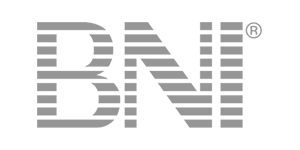Technical SEO Tips for CT Businesses
Did you know that 75% of Connecticut consumers never scroll past the first page of search results? For CT businesses, online visibility isn't just important—it’s essential. Technical SEO is the foundation that ensures your website is easily found and efficiently indexed by search engines.
Unlike on-page SEO, which focuses on content, or off-page SEO, which deals with backlinks, technical SEO involves optimizing your website’s infrastructure. This includes improving site speed, ensuring mobile-friendliness, and structuring your site for easy navigation.
In Connecticut’s competitive market, mastering technical SEO can set your business apart. This article provides actionable technical SEO strategies tailored specifically for CT businesses, helping you enhance your online presence and attract more local customers.
Website Structure and Navigation
A well-organized CT website structure is important for both search engines and your visitors. Google loves a well-structured website as it shows that you care deeply about user experience.
Once again, consider the content of this article as a reference guide or a checklist of technical SEO tasks that you can do yourself:
Crawlability and Indexability
Search engines use bots to crawl and index your website. To ensure they can do this efficiently:
- Optimize your robots.txt file: Allow search engines to access important pages and block irrelevant ones.
- Create a comprehensive sitemap: A sitemap helps search engines understand your website’s structure. Submit it through Google Search Console to improve indexing. Majority of SEO tools (and plugins, if you’re using WordPress) automatically create a sitemap for you. Navigate to the SEO tool’s settings and find your sitemap’s URL. Once you get that, simply submit it through Google Search Console. If you’re on WordPress, plugins like Yoast SEO, RankMath, and Squirrly SEO make this particular task more manageable.
- Make sure your core pages are indexed: On rare occasions, you may find that one of your core pages aren’t indexed. If that’s the case, you can manually submit the URL of that page to Google Search Console to queue it for crawling and indexing. This may take some time, but this should fix the problem.
URL Structure
Clean and descriptive URLs boost SEO and user experience. Follow these best practices:
- Use relevant keywords: Incorporate terms related to your services and Connecticut.
- Keep URLs short and clear: For example, use cammarketinggroup.com/seo-services-connecticut instead of a longer, vague URL. Stuffing keywords and locations in the URL is also not advised.
- Use hyphens to separate words: This makes URLs easier for users and search engines to read.
Internal Linking
Internal links guide visitors through your site and help search engines understand your content hierarchy.
- Link to location pages: If you have multiple locations in Connecticut, link to each page. This can easily be done by creating an “Areas We Serve” page that can be accessed from the home page, the navigation bar, or the footer of your website.
- Connect service-specific pages: For example, link from your homepage to your SEO services page to improve authority and relevance.
- Interlink location pages and service-specific pages together
Mobile-Friendliness
With Google’s mobile-first indexing, your website must perform well on mobile devices. A horrible-looking website on mobile will absolutely scare people off, resulting in a massive drop in rankings.
- Ensure responsive design: Your site should look and work great on all screen sizes. This includes phones and tablets.
- Optimize for local searches: Many local customers search on mobile. A mobile-friendly site improves their experience and your rankings.
- Even if most of your audience is on PC or laptops, keeping your site mobile-friendly is still a good practice.
By refining your website structure and navigation, you enhance user experience and your site’s SEO performance, making it easier for local Connecticut customers to find and engage with your business.
Page Speed Optimization
Fast-loading websites are essential for CT businesses. Did you know that 47% of users expect a website to load in two seconds or less? Slow pages lead to higher bounce rates and lower rankings.
Importance of Page Speed
Page speed impacts both user experience and search rankings. A delay of just a few seconds can cause visitors to leave your site. Faster websites keep users engaged and improve your standing with search engines. An optimal or slow loading speed can make or break your site.
So, let’s review some of the things you need to know to get things set up correctly.
Tools for Measuring Page Speed
Use these tools to analyze your website’s performance:
- Google PageSpeed Insights: This tool from Google provides scores and specific suggestions for improving your loading times. The information you can gather here is detailed, but they are pretty technical, too.
- GTmetrix: Like the previous one, this tool also offers detailed reports on load times and areas to optimize.
- Pingdom: This tool tests your website’s speed from different locations. Quite handy if you’re operating on a large scale.
Specific Optimization Techniques
Improve your CT website speed with these tips:
- Image Optimization: Compress images without losing quality. Plenty of tools nowadays can automate this process, so be sure to check them out and choose what suits your needs.
- Browser Caching: Store parts of your site in users’ browsers for quicker access.
- Minify CSS and JavaScript: Reduce file sizes by removing unnecessary code.
- Use a Content Delivery Network (CDN): Distribute your site’s content across multiple servers to speed up load times.
The Impact of Page Speed on Local CT Customers
Faster websites lead to higher conversions and better customer satisfaction. Local customers in Connecticut are likelier to stay and engage with a site that loads quickly, increasing the chances they’ll choose your business over slower competitors.
Schema Markup for Local Businesses
Schema markup helps search engines understand your website content better. It uses specific code that provides additional information about your business.
Introduction to Schema Markup
Schema markup is a type of microdata added to your website’s HTML. It helps search engines interpret your content accurately, leading to better visibility in search results.
Focus on LocalBusiness Schema
For CT businesses, implementing the LocalBusiness schema is non-negotiable. It provides details like:
- Address: Ensure your physical location is correctly marked.
- Phone Number: Make it easy for customers to contact you.
- Business Hours: Display your opening and closing times.
- Reviews: Showcase customer feedback directly in search results.
Benefits for CT Businesses
Using schema markup can:
- Improve Local Search Visibility: Once you’ve got the schema markup set up for your site, there’s a high chance that Google will reward you with a better-looking spot on the SERPs. We call these “Rich Snippets,” wherein additional data about your website will be displayed.
- Increase Click-Through Rates: Attractive search listings draw more clicks.
- Enhance Local Rankings: Boost your position in local searches, making it easier for Connecticut customers to find you.
Implementing schema markup ensures that your business information is clear to search engines, helping local Connecticut customers discover and choose your business.
Conclusion
Technical SEO can sound quite complex and overwhelming. I know, I’ve been there. But mastering technical SEO is essential for CT businesses aiming to enhance their online presence.
Thankfully, though — and I’d like to emphasize — many tools nowadays make these technical SEO tasks easier by making them more accessible or by automating them completely.
Nonetheless, I hope you take home these key takeaways:
- Optimize website structure and navigation to improve crawlability and user experience.
- Boost page speed to keep visitors engaged and improve search rankings.
- Implement schema markup to make your business information clear to search engines.
- Ensure HTTPS and robust security to build trust and protect user data.
Technical SEO helps your website perform better in search results and attracts more local customers in Connecticut.
Applying the strategies discussed can increase your visibility, drive more traffic, and grow your business.
Feeling like you’re not up to the challenge?
The good news is there’s always a team of experts that can set your site up for success. And you don’t need to look further.
Contact CAM Marketing Group for a free SEO audit or consultation for personalized guidance. Let us help your Connecticut business reach new heights.





